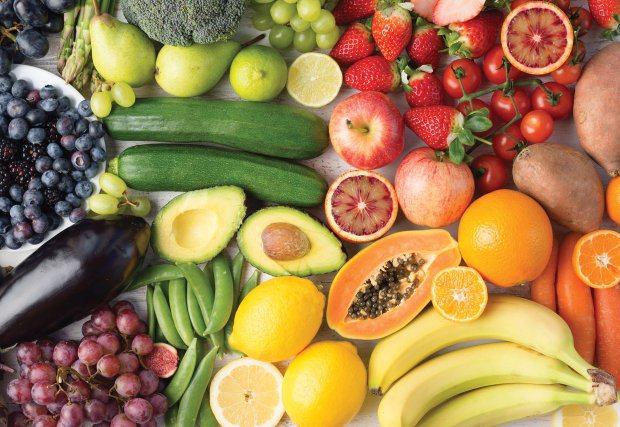Research continues to show a link between certain foods and your risk of diseases like cancer, cardiovascular disease, Crohn’s disease, rheumatoid arthritis and many others. A key factor is a condition called chronic inflammation, which can occur for years inside your body without you even realizing it.
This form of inflammation is different from acute inflammation, which happens when you experience redness or swelling from a cut or injury. Rather than acting as part of the body’s natural healing process, chronic inflammation is harmful to your organs and bodily systems. “It's almost like there's an intruder that your immune system is trying to attack to heal your body,” says Deirdre Postier, a dietitian at St. Mary’s. “It could be what you’re eating,” she says. Factors like stress or smoking can also play a role. For cardiac patients, chronic inflammation can increase atherosclerosis (or plaque buildup) in the vessels, Postier says. “It can also occur in the gut and the intestinal tract.”
Eating an anti-inflammatory diet high in plant-based foods, such as a vegan, vegetarian or Mediterranean diet, is recommended (see chart below). Also, it’s important to avoid foods with trans fats (also known as hydrogenated oils), as well as sugary, processed products, which can cause inflammation. It takes effort, but making healthy choices may help you fight disease and feel better too.
Sample Diet Choices to Help Prevent Inflammation
DO EAT ...
 Vegetables and fruits, especially red, blue and purple varieties, which are high in anthocyanin, a compound that can reduce inflammation. (e.g., blueberries, blackberries, purple potatoes). Tip: Consider frozen as a convenient, less costly alternative to fresh.
Vegetables and fruits, especially red, blue and purple varieties, which are high in anthocyanin, a compound that can reduce inflammation. (e.g., blueberries, blackberries, purple potatoes). Tip: Consider frozen as a convenient, less costly alternative to fresh. Whole grains (e.g., oatmeal, brown rice, whole-wheat bread, whole-wheat pasta).
Whole grains (e.g., oatmeal, brown rice, whole-wheat bread, whole-wheat pasta). Beans and legumes (e.g., black beans, chickpeas, lentils, pinto beans, red beans).
Beans and legumes (e.g., black beans, chickpeas, lentils, pinto beans, red beans). Nuts (e.g., almonds, pecans, peanuts).
Nuts (e.g., almonds, pecans, peanuts). Food sources for Omega-3 fatty acids (e.g., salmon, mackerel, herring, sardines, tuna; also walnuts, ground flax seeds, chia seeds).
Food sources for Omega-3 fatty acids (e.g., salmon, mackerel, herring, sardines, tuna; also walnuts, ground flax seeds, chia seeds).
AVOID ...
 Foods with trans fats (or hydrogenated oils), which may include certain bakery items, processed snacks, fried foods and others. Note: Food companies are removing trans fats from many products per the FDA, but trans fats are still out there.
Foods with trans fats (or hydrogenated oils), which may include certain bakery items, processed snacks, fried foods and others. Note: Food companies are removing trans fats from many products per the FDA, but trans fats are still out there. Refined carbohydrates (e.g., white bread, white rice, refined cereals).
Refined carbohydrates (e.g., white bread, white rice, refined cereals). Highly processed meats and meats with high saturated fat (e.g., salami, fatty cuts of beef).
Highly processed meats and meats with high saturated fat (e.g., salami, fatty cuts of beef). Foods and drinks with added sugars (e.g., sugary sodas, fruit juices, desserts).
Foods and drinks with added sugars (e.g., sugary sodas, fruit juices, desserts). Alcohol (avoid over consumption).
Alcohol (avoid over consumption).

